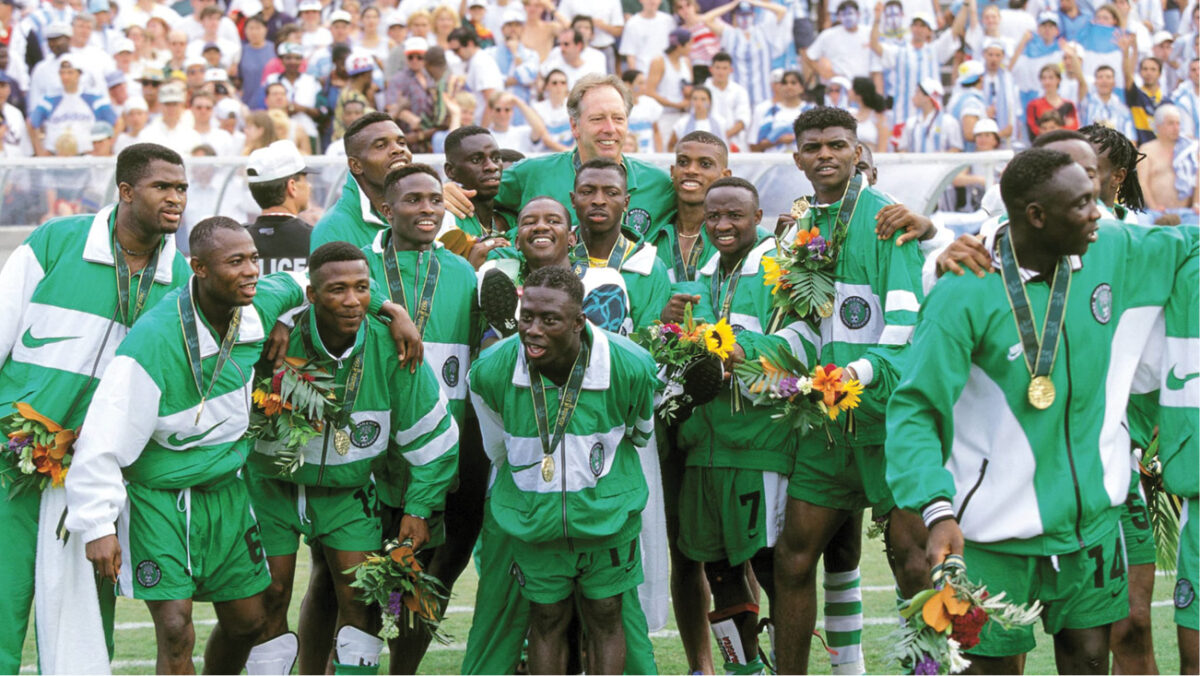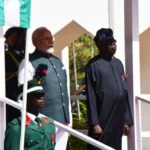As Nigerians at home and abroad celebrate their day of freedom, the sports fraternity will also join in critically assessing the sector in a bid to reposition for the much desired changes.
Although the general conclusion is that the sector has not made judicious use of the teeming population of youths at its disposal, there is no denying the fact that sports has achieved some victories in international competitions while playing its unifying role.
- PCN boss, Eruwa bemoans poor sponsorship for special sports
- High points in youth and sports development under Dare
It would be recalled that even before Independence, some Nigerian athletes had made appreciable impact in global sports.
Buoyed by some of these sporting achievements, Nigeria then moved into the era of independence with hunger for more accomplishments.
The National Sports Commission, NSC,was established in 1963 and entrusted in the care of sound technocrats who ensured budding athletes were discovered and nurtured to represent the country in international competitions.
Resultantly, the years between 1963 to late 1990 saw Nigerian athletes making podium appearances at the Olympic Games, Commonwealth Games, All Africa Games, Africa Cup of Nations and a host of others.
In assessing the sports sector, emphasis is usually placed on performances in football, athletics, boxing, weightlifting and wrestling where the country’s most glorious moments were recorded.
Undoubtedly, Nigeria’s most memorable moment in sports came at the 1996 Atlanta Olympics where the country’s golden generation won the football event in style.
Against all odds, the Kanu Nwankwo inspired Dream Team I humbled football heavyweights like Mexico, Brazil and Argentina on their way to winning Africa’s first ever gold in football at the Olympics.
It was at the same Olympics that Policewoman Chioma Ajunwa just back from a doping related suspension won the country’s first and only individual gold medal.
She attained the feat with her unexpected 7.12 meters jump.
Nigeria also had another glorious moment, this time at the 2000 Sydney Olympics.
Although the quartet-mile relay quartet of Sunday Bada (Late), Jude Monye, Clement Chukwu and Enefiok Udo Obong came second in their race, their silver medal was later converted on merit to gold when one of the American runners failed a dope test and the team’s victory was upturned and given to Nigeria.
Unfortunately, not much is known about this victory because it was not earned right there on the track.
It must, however, be remembered that even before the outstanding achievements made by Team Nigeria at Atlanta ’96 Olympics, a group of unknown teenagers had shocked the world in 1985 when the national U-17 team captained by Nduka Ugbade won the maiden edition of the FIFA U-16 World Championship in China.
That performance came five years after the then Green Eagles won their first AFCON trophy on home soil.
While the cadet team later renamed the Golden Eaglets went on to win four more titles in 1993, 2007, 2013 and 2015, the Super Eagles added two more in 1994 and 2013 in South Africa.
On their part, the female national team, the Super Falcons have won 11 Africa Women Championship, AWCON, titles to underscore their dominance of women’s football on the continent.
They’ve also featured in eight FIFA Women’s World Cup tournaments.
However, in eight appearances, their best performance was at the 1999 edition in the USA where they recorded their first and only quarter-finals appearance.
Although football remains Nigeria’s most popular sport, athletes in other games such as basketball, weightlifting, boxing and wrestling have also contributed their quota to the achievements recorded so far.
For instance, Nigeria’s first ever Olympic medallist was the Light MiddleWeight Boxer, Nojim Maiyegun who won bronze at the Tokyo 1964 Games.
Nigeria’s national basketball teams, D’Tigers and D’Tigress have also not done badly at least on the continent.
After their victory at the 2011 All Africa Games, the male team went on to win their first and only Afrobasket title in 2015 in Tunisia.
They’ve also made three World Cup appearances.
However, the D’Tigress have achieved more.
They are winners of four Afrobasket titles in 2003, 2005, 2017 and 2019.
Apart from winning the All Africa Games medal in 2003, they also made history in the FIBA Women’s World Cup when they reached the quarter-finals in Spain in 2018.
Nevertheless, Nigeria has performed better in Paralympics which is the version of the Olympics for the physically challenged.
Paralympians have remained Nigeria’s saving grace whenever their able bodied colleagues falter at the Olympics.
Paralympians like Monday Emoghawve, Adeoye Ajibola, Victoria Nneji, Patricia Okafor, Yakubu Adesokan, Lucy Ejike, Eucharia Iyiazi and Edith Nzuruike, to mention a few, are responsible for some of Nigeria’s glorious moments in sports.
Despite the steady decline in sports, the country still boasts of immensely talented footballers who are plying their trade in Europe.
Victor Osimhen’s over £73m transfer to Napoli in Serie A makes him the most expensive African footballer in history.
Furthermore, Africa’s number one table tennis player at the moment is Aruna Quadri. Blessing Okagbare, despite her recent failures, is still highly rated in the world of athletics just as the poster girl of female wrestling, Odunayo Adekuoroye is one of the best in her event in the world.
Unfortunately, achievements recorded in sports are said to have fallen short of expectations. It is said that what Nigerian sports men and women have achieved is not up to their potentials.
Despite a series of victories in the FIFA U-17 Championship, Nigeria is yet to win the FIFA U-20 World Cup.
In addition, the star studded Super Eagles and the Super Falcons have not reached the semi-finals of the senior World Cup.
It is also on record that despite her huge population and talents, Nigeria has won only one edition of the All Africa Games and that was in 2003 when the country hosted the games in Abuja.
And since Kanu Nwankwo won the prestigious African Footballer of the Year Award in 1999, no other Nigerian player has come close to winning the highly coveted title, bringing to question the quality of players who are playing in the present Super Eagles.
Another minuw for sports is the talents like Emmanuel Olisdaabe, Emmanuel Adebayor, Gabriel Agbonlahor, Dele Alli, Oguchi Onyenwu, Nedum Onuoha, Ugo Ehiogu, Tammy Abraham, David Alaba, Angela Ogbonna are among Nigerian born football players who chose to play for other countries.
Nigerian athletics too has lost talented runners like Gloria Alozie, Femi Ogunde, Francis Obikwelu, Ezinne Okparaebo, Kemi Adekoya and many others to rival countries.
It is also sad to note that Nigeria appears to have completely surrendered the long distances races to East Africans.
Nigeria is yet to produce a continental or world champion in any marathon race.
These obvious failures in sports have been blamed on endless crises in the sport federations and the rising wave of corruption in the sector.
In recent times, sports administrators, especially those in charge of football have become regular faces in law courts on allegations of corruption.
An astute sports administrator and Patron of the Nigeria Olympics Committee, Alhaji Ibrahim Galadima has blamed the steady turn down in Nigeria’s sporting fortunes on lack of policies that would engender sports development.
Furthermore, he told Daily Trust that the decision of the immediate past Minister of Sports, Solomon Dalung, to scrap the National Sports Commission is a major setback for Nigerian sports.
According to him, sports is no longer in the care of technocrats as he lamented that politicians with little or no knowledge of sports administration are the ones calling the shots.
An administrator of sports and former member of the House of Representatives, Lumumba Dah Adeh also believes only enabling laws would address the numerous problems in sports.
“Well thought out laws to govern the sector would provide the much needed direction for sports development.
“For now, there is nothing on ground so things are still done haphazardly and victories also recorded accidentally,” he submitted.
So as Nigeria clocks 60, there is the general feeling of dissatisfaction because some of the major trophies in sports have remained elusive.

 Join Daily Trust WhatsApp Community For Quick Access To News and Happenings Around You.
Join Daily Trust WhatsApp Community For Quick Access To News and Happenings Around You.

